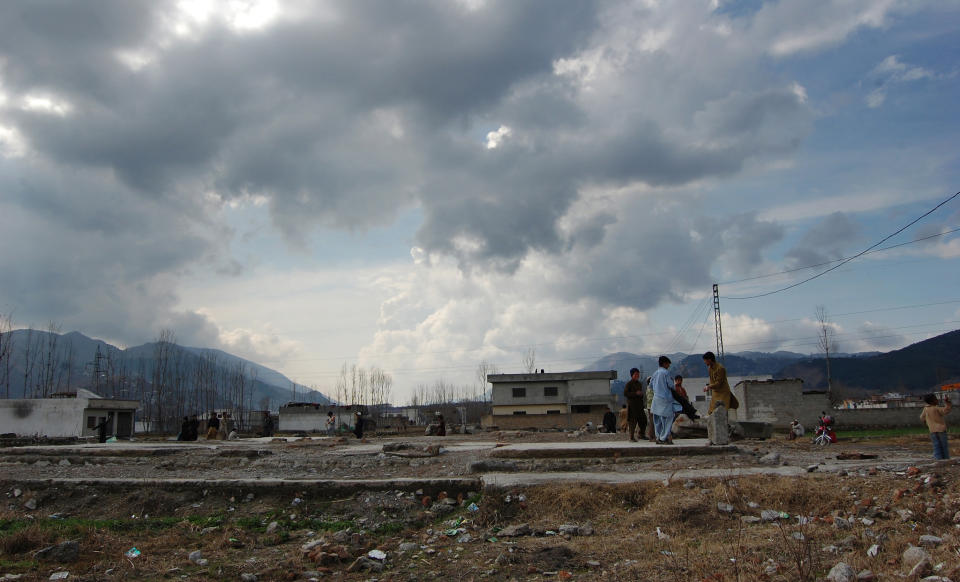Pakistan's ISI helped hide bin Laden: Book
The terrorist leader had a special desk assigned to him by Pakistani intelligence, book says

Nearly three years after the killing of Osama bin Laden by U.S. forces, an excerpt from a forthcoming book — published by the New York Times Magazine Wednesday — attempts to definitively answer a question left in the wake of his death: How could the world's most-wanted terrorist leader hide in Pakistan for six years, a few hundred yards from Pakistan’s top military academy, without its government knowing?
The short answer: He had help from Pakistani intelligence. According to New York Times correspondent Carlotta Gall, author of “The Wrong Enemy: America in Afghanistan, 2001-2014,” Pakistan's Inter-Services Intelligence, or ISI, "actually ran a special desk" assigned to bin Laden.
"It was operated independently," Gall writes, "led by an officer who made his own decisions and did not report to a superior. He handled only one person: Bin Laden."
In her first-person account, Gall offers other details gleaned from 12 years' reporting in Afghanistan and Pakistan.
The three-story concrete house where bin Laden was hiding, and where he was killed, was "strange," even to locals. One rumor had it "that it was a place where wounded Taliban from Waziristan recuperated."
But such "safe houses" — used by the Pakistani intelligence agencies for interrogation — are common in Pakistan. And "because of Pakistan’s long practice of covertly supporting militant groups, police officers — who have been warned off or even demoted for getting in the way of ISI operations — have learned to leave such safe houses alone."
According to Gall's sources, bin Laden did not spend six years in the Abbottabad compound.
“Osama was moving around,” one Pakistani security official told her. “You cannot run a movement without contact with people.”
Bin Laden "traveled in plain sight," Gall reports, "his convoys always knowingly waved through any security checkpoints." It helped that he "had dispensed with the large entourage that surrounded him in Afghanistan," and now "relied on just two trusted Pakistanis, whom American investigators described as a courier and his brother."
Shortly after the May 1, 2011, U.S. Navy SEAL raid on bin Laden’s house, a Pakistani official told Gall the United States "had direct evidence" that the ISI chief, Lt. Gen. Ahmed Shuja Pasha, knew bin Laden was in Abbottabad.
And a "haul" of files taken from bin Laden's house during the raid revealed regular correspondence between bin Laden and "a string of militant leaders who must have known he was living in Pakistan, including Hafiz Muhammad Saeed, the founder of Lashkar-e-Taiba, a pro-Kashmiri group that has also been active in Afghanistan, and Mullah Omar of the Taliban" — two militant leaders loyal to the ISI.
The publication of the excerpt comes on the day bin Laden's son-in-law, Suleiman Abu Ghaith, made a surprise appearance on the stand in a New York courtroom, where he denied aiding his father-in-law in plots to kill Americans.
"There is no one recruiting but Osama bin Laden," he said Wednesday. "My intention [was] not recruiting anyone."
Abu Ghaith, who appeared in a video with bin Laden the day after the 9/11 attacks, said his speech in the video was directed by bin Laden.
Related video:

